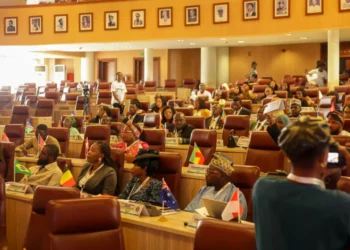Recently, the question of whether the UN Security Council is sufficiently effective has become more and more persistent, as its composition does not reflect the real conditions in the global world of the 21st century. In addition, its tool—the right of veto, available to the permanent members of the council—does not allow for solutions to be moved forward unless they are in the individual interests of its members.
Now, US President Joe Biden, in his speech at the 78th session of the UN General Assembly in New York, is said to propose expanding the number of its permanent members. This was stated by the spokesperson of the US National Security Council, John Kirby, in an interview with The Telegraph published last Sunday. “We have made it clear that we believe the time has come to take a closer look at the architecture of the UNSC. We think it should be more inclusive and comprehensive,” he said. The proposed plan suggests adding five or six new permanent members to the council, including Brazil, India, Germany, South Africa, and Japan. Kirby’s words do not mention its important instrument—the right of veto.
The demand for the reform of the UNSC is not new, but it has never been completed. There is no doubt that this step would make the council’s work more efficient and could herald the resolution of many current and long-term international issues. However, the question of the right of veto, which the permanent members possess, also needs to be addressed, so that, in the end, it would not be just a cosmetic adjustment.
The UNSC currently has five permanent members – China, France, Russia, the United Kingdom, and the United States. The other ten members are elected by the UN General Assembly for a period of two years. Currently, these members are Belgium, the Dominican Republic, Indonesia, South Africa, Kuwait, Germany, Peru, Ivory Coast, Poland, and Equatorial Guinea









